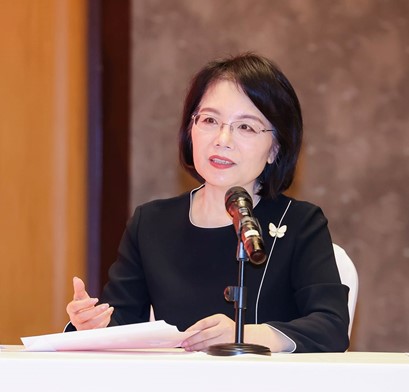Humanity is the core spirit of medicine——Speech by Professor Rui-Ping Xiao at the Award Ceremony for the Inaugural Medical Humanity Essay Competition

Professor Rui-Ping Xiao
(Associate Editor, NEJM; Managing Editor, NEJM医学前沿; Dean, College of Future Technology, Peking University)
It's a great honor and privilege to welcome all of you in this beautiful campus at the beautiful season, the golden season of the year. This is the first time for us to have this kind of activity.
Humanity is the core spirit of medicine. We have thought about this topic for years, but eventually today we have this Celebration. We have launched this initiative for our new medical culture, for the new medical education and for the benefits of our patients. I wish to take this opportunity to congratulate our awardees, six of them have the honour. They told us touching and compassionate stories about their experiences and their understanding of humanity.
And today we're not only celebrating these excellent essays, we're also planting the seeds in our educational system. When I was a medical student, I never had this kind of education. My classmates and I learnt about the drug discovery and development. We learnt how to diagnose diseases. We learnt some treatments. But nobody told us how to cure the patients, how to put our heart and soul, how to keep the medicine with temperature, with warmth, how to use our heart in addition to our brain. For medicine, the heart is more important than the brain. But a combination of the heart and the brain is what we need. That makes the real medicine, the real physician.
The range and depth of our essays are far beyond my expectation. We received submissions from not only this land, from China, but from North America, including US and Canada. Among those essays, a touching story talked about an elder suffering from late stage lung cancer. He had enjoyed smoking for decades, but everybody told him “you should quit”. One of his physicians was so caring, just like a son of him. He said “oh, if you wish to keep smoking, please do it”. Then that's like the most happy thing happened in the patient’s life. He had kept smoking and survived for another four years.
So the impact of this competition, I just give an example, has been profound and far reaching not only to our participants but to all the faculty. We carefully reviewed more than 400 essays with our heart and thought. Now only six of them have the honour award, but they are all so excellent. It is difficult to decide who is No. 1, No. 2 and No. 3. But we are humans with preference and feelings.
I also would like to extend my sincere thanks to Professor Qide Han. He has initiated the culture, cultivated humanity in our medical education system. It was my great honor to have the opportunity to communicate with him occasionally. He mentioned that when he was young he was assigned to work in a rural clinic in a poor village. They didn't have advanced technology or medicine, but they did a good job in treating their patients. What's the magic? They used the heart, not only the brain. Professor Han has set an amazing role model for the young generation physicians. He has not only cultivated the culture of medical humanity in this campus, but also advocates this spirit and culture nationwide.
As we celebrate this remarkable event, those essays will shed new light on our understanding of the real human being, the real spirit, the real wisdom. I cherish that. I hope everybody else also can feel the same way.
Now, what is the real feeling in my heart? I would like to emphasize compassion, empathy and deep sense of connection, that make us be a friend, be a family member of our patients. That’s so important and makes us a real doctor.
(Transcriber:Hangyu HUANG. Editor: Qi CHEN)


